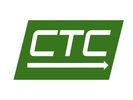|
By: Jacob Atherton  The City of Iowa City has set an ambitious goal to lower our total greenhouse gas emissions by 80% by 2050, compared to emissions data measured in 2005. We as Iowa City residents now have 30 years to contribute to the ongoing progress to reduce emissions and lead as an example for other cities around the United States who see the need to do the same. Iowa City has the potential to demonstrate how a community can collectively adapt to the effects of climate change while empowering all residents to get actively involved, be heard, and benefit from and contribute towards efforts for a better future. Emissions associated with transportation are Iowa City’s second-highest pollution source, following energy consumption from buildings. According to the Iowa City Climate Action and Adaptation Plan, roughly 2/3 of working people in Iowa City commute via their own personal car, and the majority of those who do so travel alone. There is quite a lot of potential to reduce our emissions by changing our transportation and mobility habits. Cars release their most toxic pollution within their first few minutes of operation, prior to reaching their optimum operating temperature. Because of this, when using a car to make a short distance, a single destination trip of two miles or less, higher levels of pollutants will be released per mile traveled compared to a car that is making a longer trip. Those quick runs to the store to grab a few items or a short commute to work really do add up over time, even if they don’t consume a lot of gasoline at the time. Vehicle travel is expected to continue to grow over time as Iowa City expands. More people, more cars, more short trips, and more time spent idling at stoplights. As informed citizens, we have a responsibility to shift our short errand trips and commutes from personal vehicle travel to public transit, cycling, and walking when possible. Iowa City, the University of Iowa, and Coralville will be presenting transit service improvements for each of their systems on January 28th, 29th, and 30th. In order for improvements such as fare reduction, fare elimination, the addition of bus stops, route changes, or service hours to be effective tools to reduce emissions while improving mobility for those who need it most, public feedback is crucial. Proposed improvements with clear public support are much, much more likely to be funded and implemented later this year. Participants of these public transit meetings will have the opportunity to complete a survey regarding these improvements and have their voices heard by working together with their community to reinforce ideas that can actually make an impact.
0 Comments
|

 RSS Feed
RSS Feed
